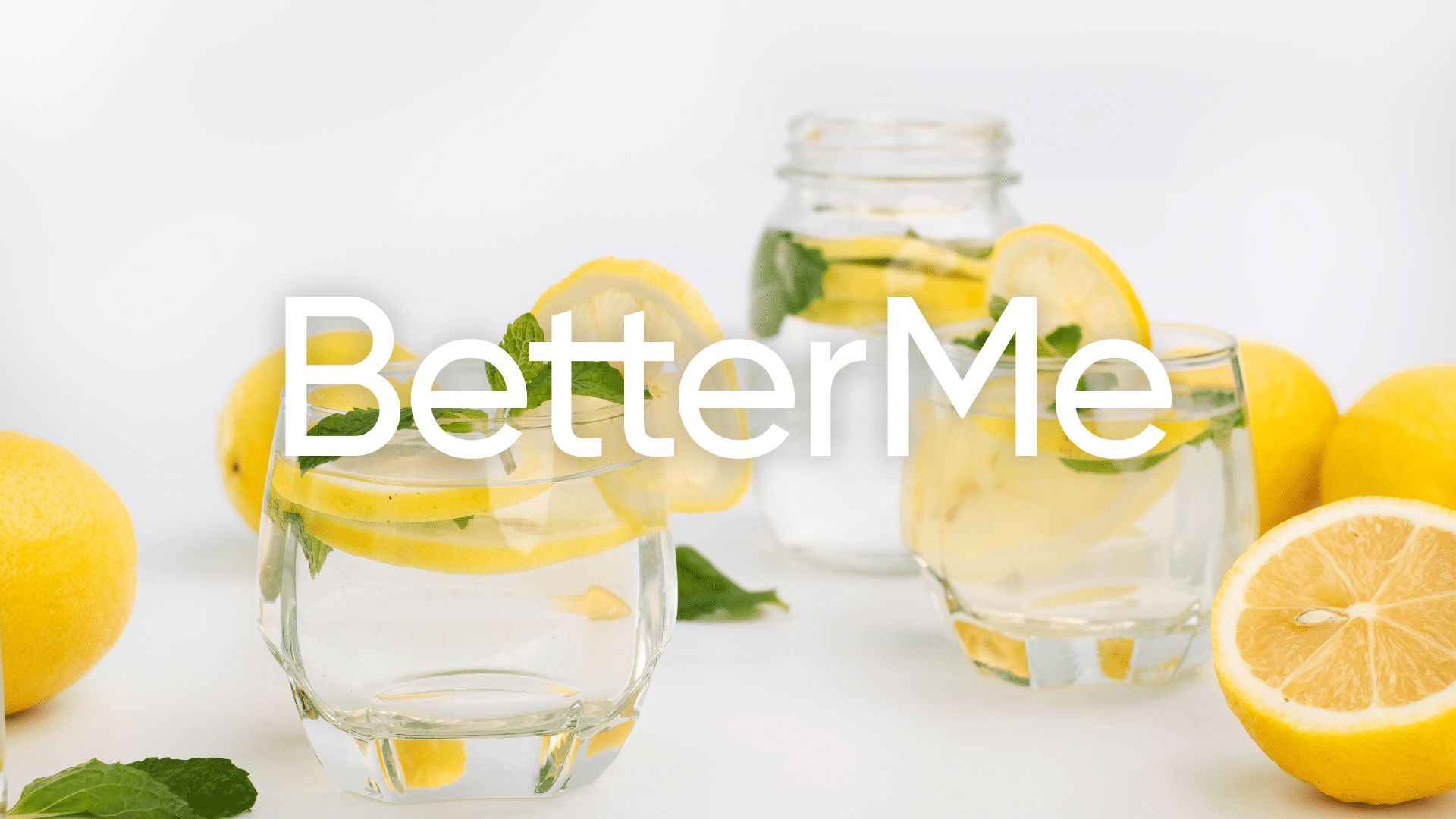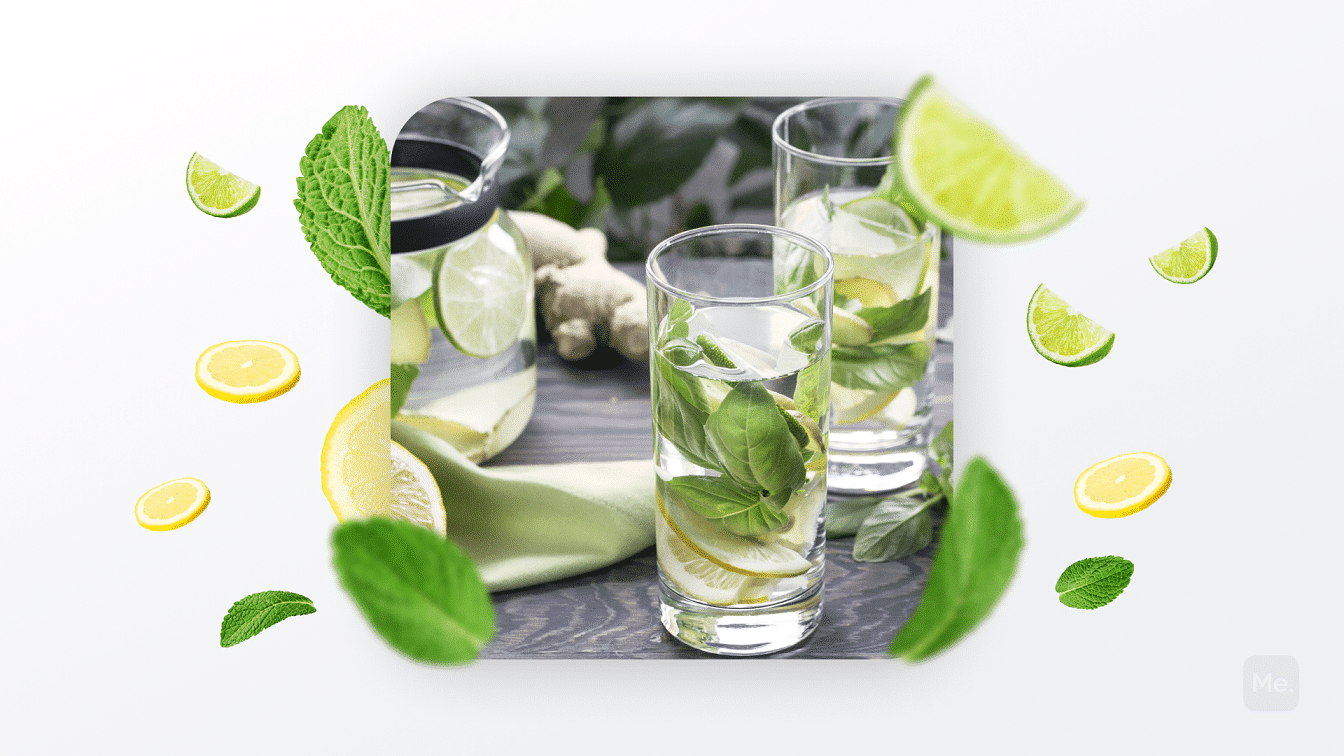Liquid diets have gone viral in recent years as a potential weight loss strategy. Although many doctors and physicians may recommend a 5-day liquid diet for a variety of reasons, is it as effective for losing weight?
In this liquid diet guide, we take a closer look at what exactly this strategy is, the different types of this all-fluid plan, the benefits, various meal plans, and potential side effects.
Firstly, we recommend that you consult your healthcare professional before you start on a 5-day liquid diet. While the diet is used for certain medical reasons on a short-term basis, starting an unsupervised liquid diet may do more harm than good.
What is a 5-day liquid diet?
A liquid diet consists of beverages and foods that are liquids at room temperature. Basically, the liquid diet consists of only drinks— these can be juices, smoothies, soups, broths, etc. depending on the type of liquid diet. A liquid diet does not require any chewing. With a full liquid diet, you can even consume drinks such as high-protein meal replacement shakes.
Liquid diets are used for medical reasons, such as when preparing for or recovering from gastrointestinal surgery, or when recovering from conditions such as a bowel obstruction. Some people use liquid diets to “detox” or lose weight, but these reasons are not evidence-based and any weight loss is not likely to be sustainable..
Now we’ll take a look at the different types of 5-day liquid diets:
1. Detox/Cleansing Liquid Diet
With this type of liquid diet, you are allowed to consume fruit and vegetable juices, smoothies, and other foods that can be blended into liquid form.
While these diets are intended to “cleanse” or remove toxins from the body, the reality is that your body already does this on its own and these diets have no impact on your body’s defenses or detoxification abilities.
2. Meal Replacement Liquid Diet
With this type of liquid diet, you can purchase pre-made meal replacement liquid foods or shakes. These are generally low in calories and are intended for weight loss.
They are designed to replace your regular meals and solid foods. Therefore, they provide some level of essential nutrients with fewer calories than you would consume if you were eating normally. This can result in weight loss, but it typically isn’t sustainable long-term. Sometimes these diets are used short-term in preparation for certain surgeries.
3. Medical liquid diets
This type of liquid diet is medically prescribed by a doctor, usually when recovering from gastrointestinal surgery, or certain conditions or illnesses, or when chewing or swallowing is difficult.
Medical liquid diets can be clear liquids only or full liquids. With clear liquid diets, clear liquids such as water, broth, apple juice, popsicles, syrup, and teas are recommended. With full liquid diets, clear liquids are allowed as well as full liquids like milk, nutritional shakes, strained creamy soups, etc.
Whether you’re a workout beast or just a beginner making your first foray into the world of fitness and dieting – BetterMe has a lot to offer to both newbies and experts! Install the app andexperience the versatility first-hand!
How to do a 5-day liquid fast?
While there are no blueprints for how to go about a 5-day liquid diet, there are some strategies to make it easier.
Most people start with a 24-hour liquid diet, gradually progress to a 2-day or 5-day liquid diet, and ultimately complete with a 7-day liquid diet. However, any duration beyond a single day of liquid dieting should be discussed with your healthcare provider.
The best way to acclimate your body to a liquid diet is to approach it gradually. Combining modest caloric restriction with increased physical activity and aiming for a weight loss rate of no more than 1 to 2 pounds per week is a safer, sustainable, and healthier approach to losing weight.
Some tips on approaching a 5-day liquid diet include:
For beginners:
For weight loss, replacing one or two meals with fruit and vegetable juices and smoothies is a more achievable approach, although still not the most sustainable long-term. Beginners who are attempting their first weight loss liquid diet or those who are looking to embark on a 7-day liquid diet for weight loss (or really anything over a 1-2 day liquid diet plan) should replace just one or two meals per day.
While the meal replacements are dependent on your preference, you should always ensure they are as nutrient-dense as possible. Some studies have found that soups have a satiating effect and are often chosen by beginners as meal replacements. (5)
For pros:
For those on a liquid diet for medical reasons, all solid foods can be replaced with liquids and clear fluids such as bone broth, teas, or meal replacement products. These can be protein shakes, electrolyte-replacement drinks, or liquid dietary supplements.
Here are some of the foods you can consume during a 5-day full liquid diet plan:
- Fresh fruits and vegetables
- Broth
- Herbs
- Creamed soup
- Cold-pressed juices
- Soy milk
- Sorbet
- Popsicles
- Gelatin
- Pudding
- Custard
- Flavored water
- Tea/coffee
- Yogurt
- Honey/syrup
- Sports drinks
Some of the foods you should avoid during a 5-day liquid diet plan include:
- Meat (unless puréed, thinned, and strained)
- Nuts and seeds
- Carbonated beverages
- Soups or stews with noodles, meat, or vegetables
- Bread
- Whole pasta or rice
- Cereals
- Potato chips and crackers
- Popcorn
- Muffins, cakes, cookies, or pastries
Is it safe to do a 5-day liquid diet?
It is advisable to talk to your healthcare provider before you start a 5-day liquid diet. Most people on this type of diet are on it for medical reasons, and they will be closely monitored by their care team..
However, it is also important to note that the weight loss from a 5-day weight loss may be rapid, but only temporary. Once you transition back to solid foods, it is quite likely that you gain back the lost pounds. It is also not a sustainable long-term weight loss plan.
The prolonged adoption of a liquid diet can make you feel weak, deprive your body of essential micronutrients, and deteriorate your health. Pregnant women, older adults, and children should avoid a liquid diet unless medically necessary.
Read more: Liquid diet ideas – healthy but not for everyone
Are there any benefits to a 5-day liquid diet?
While it is recommended that you seek professional help when starting out, there are some general benefits with a liquid diet, whether you adopt it for a single day a week, 2 days, 5 days, or 7 days.
1. Low In Calories
Liquid diets are low in calories. Studies have suggested that very low-calorie diets, such as a liquid diet that consists of no more than 500 calories a day, could be effective for weight loss. (8) However, these should only be done under medical supervision.
2. Easy On The Digestive System
These diets are often used in the short term when recovering from gastrointestinal surgery or conditions such as a bowel obstruction. They allow your GI tract to rest and recover, slowly reintroducing it to easy-to-digest foods.
How can you lose weight with a liquid diet in 5 days?
You are likely to lose weight on a liquid diet, as it is very difficult to meet your calorie needs on such a restrictive diet. However, this weight loss is most likely temporary.
When you don’t get enough energy from the food you eat, your body first turns to its glycogen (carbohydrate) stores. The body contains approximately 3-4 grams of water for every gram of stored glycogen. If you are on a liquid diet and not consuming enough calories, your body will burn through your glycogen and release all the water with it. (7, 6)
When you start eating solid foods again, you’ll be getting enough energy and your body will rebuild its glycogen stores. The water weight will come back with it.
If you’re looking for an effective way of losing weight sustainably, you’ll need to be patient. Create a modest calorie deficit over the long term by eating a healthy balanced diet and incorporating physical activity.
How much weight can I lose in 5 days on a liquid diet?
Not everyone’s body will react in the same way to a liquid diet, so the amount of weight loss can vary significantly from one individual to another. It’s also important to remember that any weight lost on a liquid diet is likely to come back as soon as you start eating solid foods again. It is not a sustainable approach to weight loss.
Dropping pounds by the dozens without putting yourself through the wringer is everyone’s weight loss pipe dream. But what if we told you that the BetterMe app can make that happen? Keep yourself in prime shape with our fat-blasting workouts, delicious budget-sparing recipes, and body-transforming challenges with our app!
FAQs
Do liquid diets shrink your stomach?
While it’s not possible for diets to shrink your stomach, you may alter the way your metabolism reacts to a lower calorie intake. As with any type of liquid diet or a diet where the number of calories consumed is dramatically cut, a person’s metabolism will start to slow down after a while. This is because the body becomes used to surviving on fewer calories.
Are scrambled eggs allowed on a full liquid diet?
No, scrambled eggs or any kind of solids are generally not advisable when you are following a full-liquid diet plan. They are included in a soft foods diet, which is often the next step after full liquids when advancing your diet after surgery.
Can a liquid diet help you lose belly fat?
You can lose weight on a full liquid diet if you do not consume enough calories. Most people require a minimum of 1,350 to 1,500 calories and 45 grams of protein a day. Liquid diet weight loss may be sudden and significant, even if you’re not on the diet for a long time, but temporary and unsustainable in the long term.
How long will it take to lose 10 pounds on a liquid diet?
You may be able to lose 5-10 pounds on a 3-day liquid diet. However, this loss is probably temporary.
DISCLAIMER:
This article is intended for general informational purposes only and does not serve to address individual circumstances. It is not a substitute for professional advice or help and should not be relied on for making any kind of decision-making. Any action taken as a direct or indirect result of the information in this article is entirely at your own risk and is your sole responsibility.
BetterMe, its content staff, and its medical advisors accept no responsibility for inaccuracies, errors, misstatements, inconsistencies, or omissions and specifically disclaim any liability, loss or risk, personal, professional or otherwise, which may be incurred as a consequence, directly or indirectly, of the use and/or application of any content.
You should always seek the advice of your physician or other qualified health provider with any questions you may have regarding a medical condition or your specific situation. Never disregard professional medical advice or delay seeking it because of BetterMe content. If you suspect or think you may have a medical emergency, call your doctor.
SOURCES:
- Detox diets for toxin elimination and weight management: a critical review of the evidence (2015, pubmed.ncbi.nlm.nih.gov)
- Dietary fiber and prebiotics and the gastrointestinal microbiota (2017, ncbi.nlm.nih.gov)
- Effects of Solid versus Liquid Meal-replacement Products (2007, ncbi.nlm.nih.gov)
- Effects of Solid versus Liquid Meal-replacement Products (2007, ncbi.nlm.nih.gov)
- Foods with different satiating effects in humans ( pubmed.ncbi.nlm.nih.gov)
- Loss of total body potassium during rapid weight loss (2000, pubmed.ncbi.nlm.nih.gov)
- Relationship between muscle water and glycogen recovery after prolonged exercise in the heat in humans (2015, pubmed.ncbi.nlm.nih.gov)
- Weight loss and dropout during a commercial weight-loss program (2012, pubmed.ncbi.nlm.nih.gov)










